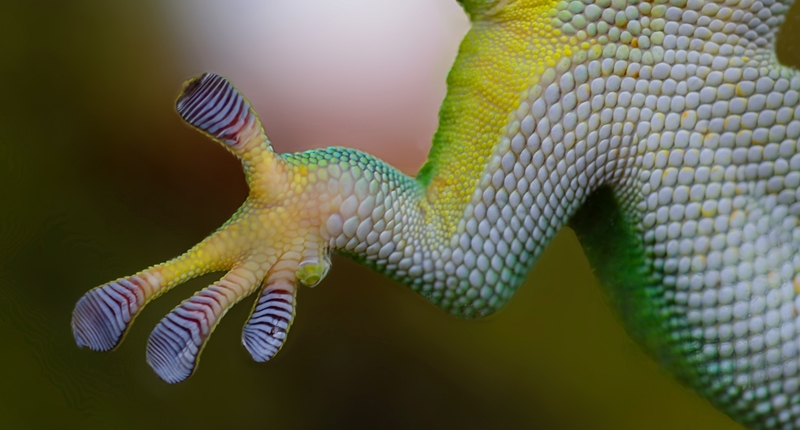Sony launches the WF-1000XM6 in South Africa with upgraded noise cancelling, better call clarity and premium sound. Pricing starts at R7,999.
Ford looks to the gecko for inspiration in its cars

This is pretty cool. US auto giant Ford has teamed up with Proctor&Gamble to explore potential applications of biomimicry technology.
The two companies are particularly interested in ways to copy the mechanics of gecko toe pads.
The lizard’s toe pads allow it to stick to most surfaces without liquids or surface tension. The reptile can then easily release itself, leaving no residue. Consider, too, that a typical mature gecko weighing 2.5 ounces is capable of supporting 133kgs.
According to Ford senior technical leader for plastics and sustainability research Debbie Mielewski, the gecko could inspire a host of adhesive innovations for global applications at Ford.
“Solving this problem could provide cost savings and certainly an environmental savings,” said Mielewski. “It means we could increase the recycling of more foam and plastics, and further reduce our environmental footprint.”
Nearly 200 researchers and designers took part in the day-long session to learn about biomimicry and how to apply it to their work.
“We are excited for the opportunity to participate, together with Ford – with whom we have a history of collaboration – in The Biomimicry Institute workshop,” said Lee Ellen Drechsler, director for corporate connect and development, The Procter and Gamble Company. “We have an interest within Procter & Gamble for using biomimicry as a way to broaden our approach to solving tough research challenges.”
The biomimetic approach is not new. The Bullet Train in Shinkansen, Japan was inspired by the kingfisher. Velcro took its cues from a burr. And improved medical needles were developed based on the mosquito. Interest in the approach has increased in the last decade as awareness of climate change and environmental challenges is heightened, said Gretchen Hooker, project manager for design challenges at The Biomimicry Institute.
Founded in 2006, the group works to empower people to create sustainable products and services using biomimicry. In addition to mobilizing educators and regional practitioners through the Biomimicry Global Network, the organization provides a platform to learn and practice biomimicry through multiple design challenges. These include open innovation, academic-corporate partnerships and corporate-employee challenges where employees get hands-on training while developing new solutions to issues corporations face. AskNature.org, the organization’s online database of biological solutions, offers inspiration to those looking to find answers in biomimicry.
“Ford and P&G are the first companies to take part in these new corporate-employee challenges,” said Hooker.
Ford hopes that this latest push will help it increase its efforts at building environmentally sustainable cars.
“As we look to further our commitment to reducing our environmental footprint, taking a holistic, biomimetic approach makes sense because nature has efficiencies in design and uses minimal resources,” said Carol Kordich, global sustainable fabric strategies and development, Ford. “Nature is the ultimate guide.”

